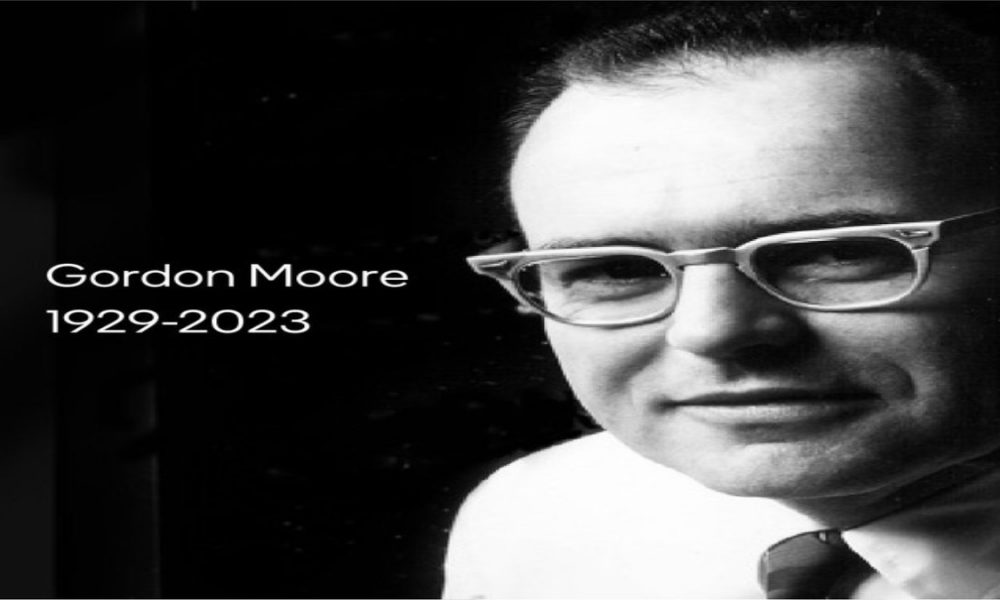
New York: Gordon E Moore, the co-founder of American multinational corporation and technology company, Intel Corporation died on Saturday at his home in Hawaii, New York Times reported.
Intel and the Gordon and Betty Moore Foundation both acknowledged his passing, however, they didn’t give details of his demise.
Moore’s foresight concerning the exponential growth of computer chip technology in the 1960s set the stage for the high-tech era. The California semiconductor chip maker that helped give Silicon Valley its name, attained vast industrial domination formerly held by the enormous American railroad or steel industries of bygone eras, according to the report of the New York Times.
Moore always called himself an ‘accidental entrepreneur’ as he always wanted to be a teacher but could not become one. Due to his original USD 500 investment in the budding microchip industry, which helped make electronics one of the largest industries in the world, he became a billionaire.
In addition, he is credited with making laptop computers accessible to hundreds of millions of people and with putting microprocessors inside of everything from toaster ovens, bathroom scales, and toy fire trucks to telephones, automobiles, and aircraft, New York Times reported.
Today, we lost a visionary.
Gordon Moore, thank you for everything. pic.twitter.com/bAiBAtmd9K
— Intel (@intel) March 25, 2023
Moore, along with his wife Betty Moore contributed immensely to philanthropy.
The duo founded the Gordon and Betty Moore Foundation in 2001 and donated 175 million Intel shares in the process. They made the greatest single gift to a university at the time in 2001, giving USD 600 million to the California Institute of Technology.
Moore and his longtime colleague Robert Noyce founded Intel in July 1968.
Prior to taking office as president in 1975, Moore was executive vice president. Moore was appointed board chairman and CEO in 1979, positions he maintained until 1987 when he resigned from the CEO role but retained the chairmanship, the Intel newsroom informed.
Significantly, by the 1990s, Intel had microprocessors in 80 per cent of the computers produced globally, making it the most prosperous semiconductor business in history.




